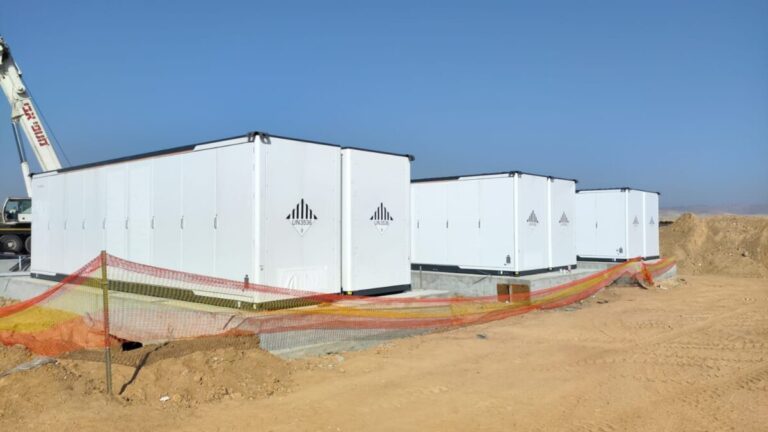Market analysis provider Aurora Energy Research has explored the potential for co-location of renewable energy sources with battery energy storage systems (BESS) in 12 European countries. This showed that Germany, Great Britain, the Irish I-SEM and Poland are leading the way.
From pv magazine ESS news place
The differences in regulations on the European markets for hybrid renewable installations are large. While some facilitate colocalized deployment and provide faster network access and a wide range of revenue streams, others lack specific policies and objectives. Confusing market signals, double taxation and restrictive grid policies, which prevent BESS from charging via the electricity grid, have also hampered implementation.
In the latest analysis, Aurora Energy Research identified Germany, Great Britain, Ireland I-SEM and Poland as the four most important European markets for co-location of renewable energy sources.
Huge capacity expansion
The consultancy predicts that an additional 421 GW of intermittent renewables will be connected to the grid by 2030. Such massive capacity expansions will pose significant risks to renewables, including cannibalization of shelter prices, increasing curtailment and rising imbalance costs.
These risks will be particularly high in Germany, Greece, the Netherlands and Ireland’s I-SEM, and encouraging the co-location of renewables with BESS is one way to mitigate these risks.
“With intermittent renewables playing an increasingly important role in the European energy landscape and the recent introduction of batteries, community projects will soon become an essential part of developers’ work,” said Rebecca McManus, senior research associate at Aurora Energy Research. “However, each asset type is challenging to navigate on its own and managing the interplay between both asset classes and how they can be managed together will remain an obstacle.”
To read further, visit our ESS news website.
This content is copyrighted and may not be reused. If you would like to collaborate with us and reuse some of our content, please contact: editors@pv-magazine.com.


